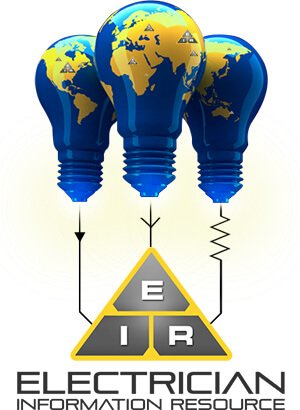Trade Schools New Jersey - Become An Electrician Through An Apprenticeship Program

Is becoming an electrician something that sounds appealing to you? The truth is that electricians are in demand in New Jersey for industrial, commercial and residential work, and there has never been a better time to become an electrician in the state.
Becoming a part of this thriving field of work can help you find a rewarding and fulfilling career. The first step you can take toward achieving your goal of becoming an electrician is to attend a trade school.
If you’re hoping to find local trade schools in New Jersey or learn more about becoming an electrician, complete the online form below!
How to Become an Electrician in NJ
To become an electrician in New Jersey, you must be licensed. The first step is to fill out your application for an electrician apprenticeship in New Jersey.
After that, you can look for a job as an apprentice to complete your mandatory five-year training under the supervision of a qualified electrician.
Next, you will need to pass an electrical contractor assessment and apply for your electrical contractor's license after completing your apprenticeship. Once you've received your New Jersey electrical license, you can apply for a journeyman license.
Attending trade school can give you the boost of experience and confidence you need to become a successful electrician.
What Is a Trade School?
A trade school provides young electricians with the technical knowledge they need to thrive in a fast-paced professional environment. You will learn how to work with electrical tools and practice certain techniques to gain experience in the field.
Upon completion, you will receive a certificate that can be added to your resume to demonstrate your competence in the fundamentals. Receiving formal training offers a number of benefits to people who hope to begin their apprenticeship.
What Attending an Electrician Trade School in New Jersey Can Do for You
The reality is that there are many aspiring electricians, so to stand out from the crowd and land your first job as an apprentice, you can attend a New Jersey technical school.
Your future as an electrician depends on your apprenticeship, as serving the mandatory five years under the wing of a licensed electrician is a requirement.
However, the truth is that no electrician wants to spend time training an apprentice with no working knowledge of electrical work, safety procedures, or experience in the field.
This means that if you apply for an apprenticeship without any prior knowledge or experience, potential employers aren't going to jump at the opportunity to hire you.
On the other hand, if you have completed one of the electrician apprenticeship programs in NJ at a trade school, you are more likely to be hired since an electrician will not have to spend as much time training you.
While having formal training makes you a more appealing candidate to potential employers, it will also boost your confidence in the trade and secure your future as an electrician.
Reasons to Become an Electrician in New Jersey and Where You Can Thrive With This Career Choice
The electrical industry is booming, and with new projects in the pipeline and a growing population, there's no better time to take up the trade. Here are a few reasons to become an electrician in New Jersey in 2022:
1. Electricians Are in Demand
It's an exciting time to work as an electrician in the United States. According to the US Bureau of Labor Statistics, electrician employment is expected to expand by eight percent between 2019 and 2029. Keep in mind that this is substantially faster than the overall projection.
Furthermore, jobs in the electrical field are expected to rise by 18.5 percent over the next 10 years. As a result, employment security and prospects to start a business as an independent electrician in New Jersey are plentiful.
The ongoing requirement to maintain increasingly advanced digital wiring and electrical systems contributes to the favorable prognosis for this profession.
2. New Jersey’s Diverse Industrial Landscape Creates Many Opportunities
New Jersey has a diverse economic landscape, and some of the most prominent industries are:
- Pharmaceuticals
- Car manufacturing
- Transportation
- Financial services
- Agriculture
- Information technology
- Advanced manufacturing
The truth is that most, if not all, of these industries rely on electrical systems to function, so electricians play a significant role in ensuring that the relevant companies in these sectors have fully functional electrical systems.
This creates diverse opportunities for electricians. You could choose to specialize in advanced manufacturing, directing your focus to large-scale mechanical systems at a manufacturing plant, or you could concentrate your efforts on maintaining and repairing agricultural electrical systems.
As you can see, the opportunities for industrial electricians are endless!
3. There Is an Increasing Demand for Residential Electricians
If you’re hoping to focus your efforts on residential applications (i.e., work on household electrical systems), you’ll find that there is a growing number of opportunities.
According to statistics, the population has grown by six percent over the past decade and is expected to continue this growth.
This is good news for electricians since a growing population means more homes, which indicates that there will be an increased need for residential electricians.
The truth is that residents require electricians all the time for tasks such as:
- Replacing damaged cables
- Installing new electrical equipment
- Conducting routine maintenance
- Inspecting electrical wiring
- Installing systems for controls and lighting
- Checking smoke detectors and other electrical safety devices to ensure that they are working properly
Moreover, industrial real estate is very popular in the state. This is due in part to spillover from New York City into more affordable properties in New Jersey.
Additional demand is created by emergency repair work following storms and grid outages, as well as the continual need to maintain outdated electrical equipment in manufacturing plants.
Furthermore, as the state's power generation develops, electricians skilled in the installation and maintenance of wind and solar power systems will be required. Electricians will be responsible for connecting these new sources of energy to residential and power systems.
When pursuing an education at technical schools in New Jersey, your chances of landing a job as an apprentice with a residential electrician will be much higher!
4. New Building Projects Create Even More Opportunities
From power plant constructions to the building of bridges and tunnels, there are numerous construction projects taking place in New Jersey in 2022.
The truth is that electricians have certain responsibilities throughout construction projects to ensure that workers have an electrical supply to power their tools and they are responsible for installing new electrical systems.
This means that you’ll have an endless number of opportunities if you’re interested in working in construction in the state!
5. There Is Great Potential for Earning
Everyone pursues a career to make money and you’ll be happy to know that becoming an electrician can be quite lucrative.
According to statistics, the average hourly earnings for electricians in New Jersey is $26.94, which is roughly $4310 per month, so there is undoubtedly potential to earn when you pursue a career in the trade!
Who Should Attend New Jersey Trade Schools?
There is often much confusion regarding who should attend electrician schools in New Jersey. If you fit into one or more of the categories listed below, you are eligible for formal training at a trade school. Electrician schools are for:
- People who hope to one day become an electrician
- Anyone who wants to receive electrical training to be able to conduct basic electrical work
- Those who are hoping to land a job as an apprentice
What You Can Expect to Learn at a Trade School
The curriculum will differ from one trade school to another, so to get accurate details about the curriculum, be sure to get in touch with the school. Here’s a general list of what you can expect to learn at a trade school in New Jersey:
- Electrical theory fundamentals
- How to work with single and three-phase electrical systems
- An introduction to motors
- Safe practices
- How to do electrical wiring
- Mathematical calculations
- What tools electricians use and how to use them
- How to interpret electrical blueprints
Ready to Begin Your Journey in a Rewarding Career?
Many young people dream of becoming a successful electrician. However, not all of them are able to achieve this goal because they lack exposure and formal training.
When you sign up with one of the trade schools in New Jersey for an electrician, you are taking the first step toward your career goals.
You'll need to obtain basic information about the educational institution to get started. By completing the online form below, you can learn:
- Whether you are eligible for the program, you're interested in
- The location of the school, so you can plan your journey and ensure that you have transportation to get there
- Costs associated with the course
- More details about what you’ll learn
- Textbook requirements
- How you can transfer from one trade school to another
Complete the online form today to pursue your dream of becoming an electrician in New Jersey!




